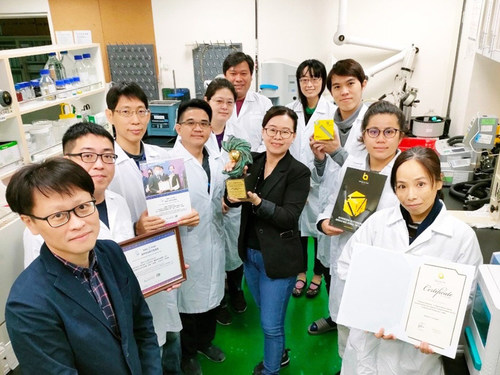Charsire Biotechnology Corp. has successfully developed a revolutionary new drug (BAC) for Alzheimer's disease

The world's population is ageing. By 2050, the elderly population will reach 1.5 billion. Following this trend, drug demand for high morbidity diseases in the elderly is expected to be high. Alzheimer's disease is an example.
Charsire aims to develop the first dementia drug with a high safety profile to get a head start and has completed an FDA-approved Phase II clinical trial.
"Alzheimer's disease is caused by inflammation of blood vessels and brain cells. Soybean extract has the effect of promoting blood circulation, reducing inflammation, and promoting the regeneration of human tissue. Charsire extracts Multi-Glycan Complex (MGC) from raw soybean to make topical ointment for related indications. Our multiphase solvent thermal extraction technology for producing MGC has actively applied for relevant patents," said Founder and CEO Chih-Yi Weng. At present, Charsire has 24 patents in 16 countries, including manufacturing process, chemical fingerprints, and applications, covering major pharmaceutical markets such as North America, the European Union, and Asia.
Weng also pointed out that with MGC as the core, Charsire has established a new drug development platform for new glycan drugs. Currently, the focus is on high market value drugs for Alzheimer's disease and vascular dementia. The MGC platform will generate more new drugs in the future.
Phase II clinical trial completed
Current drugs for Alzheimer's disease relieve symptoms by reducing the accumulation of proteins such as beta-amyloid, but they do not help nerve cells repair. The fundamental problem is not solved. By contrast, Charsire's new drug BAC helps improve Alzheimer's conditions by improving blood circulation in the brain, reducing inflammation, and promoting nerve cell regeneration.
Results of the BAC Phase II clinical trial showed that 79% of patients maintained or improved at week 4 in the group of patients who used BAC without any dementia medication. This trend continued steadily through week 12 and reached 86%. Not only were the results promising, but no side effects were found in patients.
According to the World Health Organization, dementia is currently the seventh leading cause of death. The total social cost of dementia worldwide is estimated at US$1.3 trillion and will reach US$2.8 trillion by 2030. Effective dementia drugs are an urgent problem for the medical community. The drugs currently on the market are all palliative, and there is no specific medication. Furthermore, they all have significant side effects.

Subscribe To Our Newsletter & Stay Updated